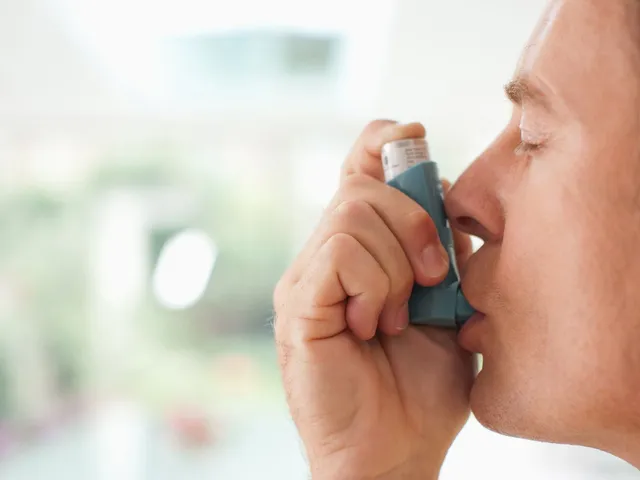Terbutaline and Smoking: How Both Affect Asthma Control — November 2023
You landed on the November 2023 archive where we covered terbutaline and how smoking changes asthma control. That post explains what terbutaline does, how smoking alters lung response, and practical steps patients can take. If you or someone you care for uses terbutaline and smokes, this page pulls the key facts into one place.
Terbutaline is a short-acting bronchodilator used to relax airway muscles and ease breathing during flare-ups. It can be given by inhaler or by mouth, and it helps open airways quickly. Common side effects include a fast heartbeat, shaky hands, and mild headaches; smoking can make those effects feel worse and increase overall cardiovascular strain.
How smoking changes terbutaline's effect
Smoking inflames the airways and changes how lungs respond to medication. Clinical reports show that active smokers often get less relief from beta-agonists such as terbutaline. Tobacco smoke can blunt bronchodilator response and reduce inhaled steroid effectiveness, so a treatment that worked well before might feel weaker while someone keeps smoking. That matters when relying on quick relief during attacks.
Practical steps if you or a patient smokes
Quit or cut back if you can. Stopping smoking improves lung inflammation within weeks and can restore medication responsiveness over time. Talk to your clinician about stop-smoking tools like nicotine patches, prescription aids, or counseling. Also review inhaler technique: improper use makes any bronchodilator, including terbutaline, less effective. Check for drug interactions and other medicines that may change heart rate or blood pressure.
Track symptoms and use objective measures. Keep a symptom diary and measure peak flow if advised. If rescue inhalers stop working as expected, contact your healthcare provider rather than increasing dose on your own. They may recommend a change in controller medication, a different bronchodilator, or additional tests.
Safety first. Smoking plus terbutaline can raise heart rate and blood pressure. People with heart disease, high blood pressure, or pregnancy should discuss risks and alternatives with their prescriber. Never mix terbutaline use advice from the internet with personal medical decisions without a professional’s input.
If you want the full post, read 'Terbutaline and Smoking: The Impact on Asthma Control' for detailed examples, symptom comparisons, and patient-friendly tips from November 2023. Bookmark this archive if you follow asthma care updates; we add practical drug guides and plain-language advice often.
Caregivers should watch for subtle signs that terbutaline is losing effect: more frequent use of rescue inhaler, waking at night with cough or wheeze, or reduced exercise tolerance. If these appear, log times of use, recent smoking exposure, and any alcohol or caffeine intake that might raise pulse. Your clinician may ask for spirometry or a steroid trial to check inflammation. For pregnant people, terbutaline risks and benefits must be weighed carefully; avoid self-adjusting doses. Community support programs and digital quit apps can boost success. Small steps — a set quit date, removing ashtrays, and using nicotine replacement while monitoring lung symptoms — often produce visible improvements in weeks.
Ask questions at appointments and bring this archive note for clearer discussions today.
Hey there! I'm here to chat about a game-changer in women's sexual health: Female Viagra. Now, it's not just the guys who get a little help in the bedroom. This stuff boosts libido and sexual pleasure for the ladies, and guess what? It's up for grabs online. Safe, effective, and totally hush-hush – your privacy is a top priority. Whether you're curious or in dire need, we're diving deep into the ins and outs of buying Female Viagra. So stick around; you might learn something new!
View DetailsHi there, this blog post dives into the correlation between terbutaline use, smoking, and their collective impact on asthma control. We'll unravel how these factors affect one another, providing insight for asthma sufferers and their caregivers. Visiting this page, you will learn about the effects of terbutaline on human health and how smoking can influence this dynamic. It's a must-read for anyone grappling with asthma management in the face of these variables.
View Details


